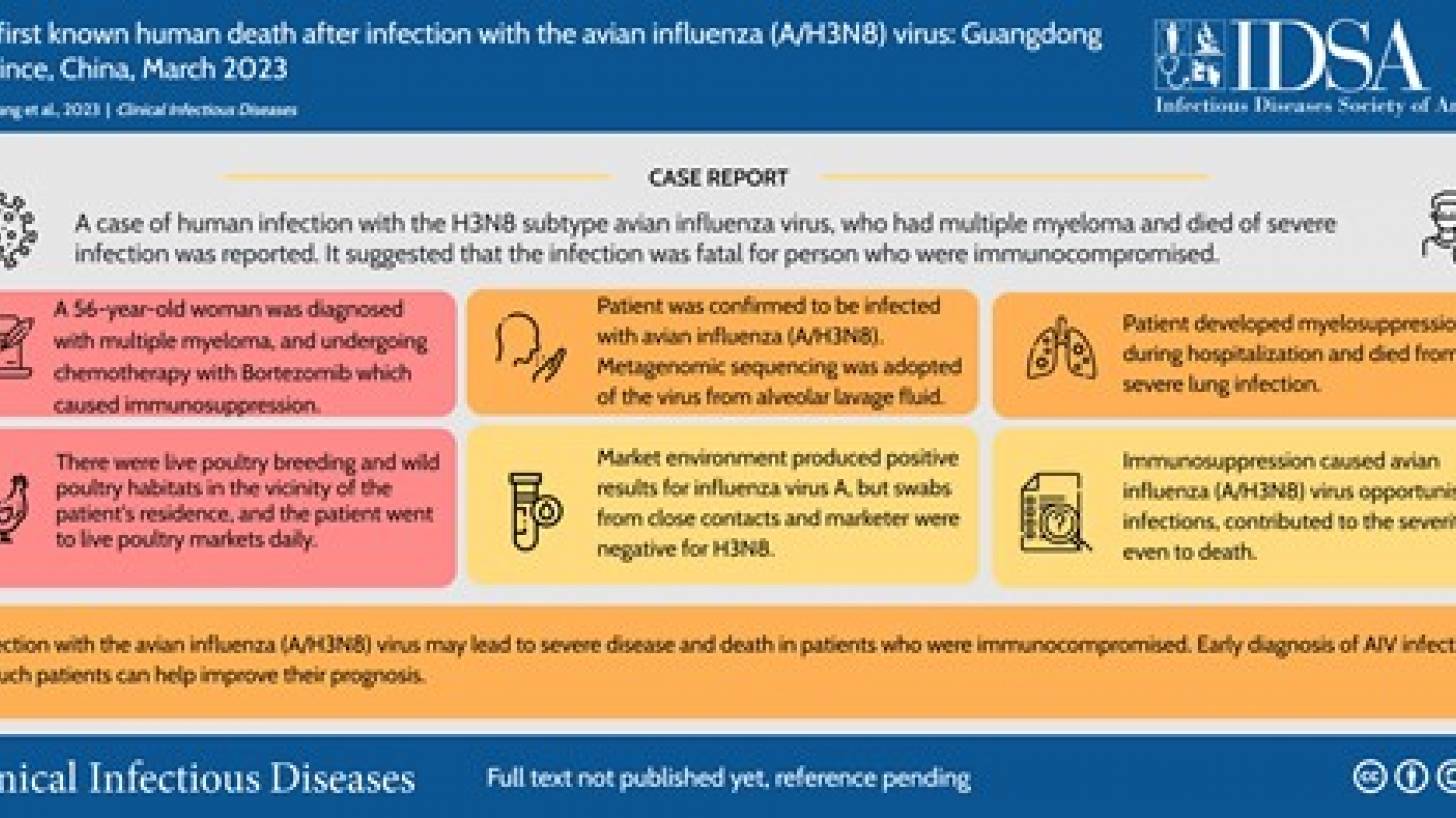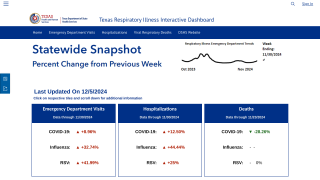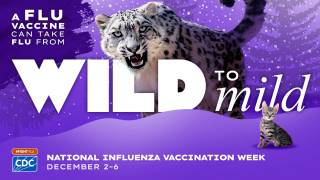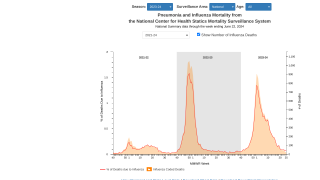Human Fatality Confirmed Following Bird Flu (A/H3N8) Infection

Over the past two years, various avian influenza outbreaks have led to the deaths of millions of birds. And a recent study reported the H3N8 avian influenza virus (AIV) in a woman who died of severe disease in Guangdong Province, China.
According to the National Health Commission of the People's Republic of China, this was the first confirmed human death after avian influenza (A/H3N8) infection.
As of August 2023, there have been three cases of human infection of avian influenza A (H3N8) virus in China.
Published by Clinical Infectious Diseases on August 9, 2023, this report further suggests that avian influenza (A/H3N8) virus infection could be lethal for immunocompromised persons.
And early diagnosis of AIV infection in such patients can help improve their prognosis, wrote these researchers.
This study's findings are essential as AIVs remain epidemic threats since AIV subtypes are known to infect mammals (bears, cats, dogs, foxes, etc.), raising concerns about their pandemic potential with people.
The follow-up genome analysis of this human case in China showed multiple gene mutations and reassortments without mammalian-adaptive mutations.
During 2022 and 2023, there have been numerous bird flu outbreaks worldwide.
Cross-species transmission and genetic recombination resulted in the 1968 H3N2 influenza pandemic, which highlighted the pandemic potential of the H3 subtype.
Since 2000, H3 subtype AIVs have been continuously isolated from poultry and wild birds in China, with H3N2 and H3N8 being the main subtypes.
In 2022, two cases of H3N8 human infection were reported in China. However, the risk of human disease was not fully understood then.
The World Health Organization stated in April 2023 that, based on available information, this virus cannot spread easily from person to person.
Therefore the risk of it spreading among humans at the national, regional, and international levels is considered low.
However, due to the constantly evolving nature of influenza viruses, WHO stresses the importance of global surveillance to detect virological, epidemiological, and clinical changes associated with circulating influenza viruses which may affect human (or animal) health.
In the U.S., the government has invested in various bird flu vaccine candidates.
And the U.S. FDA has authorized one vaccine that targets one type of virus. Audenz™ is a monovalent, adjuvanted, cell-based inactivated subunit vaccine designed to protect people from disease caused by the influenza A virus H5N1 subtype.
The FDA says the annual flu shot is not designed to protect people from bird flu viruses.
Our Trust Standards: Medical Advisory Committee
























